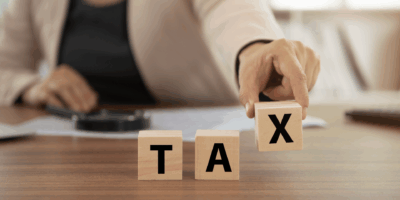Major changes coming to CIT and PIT – draft amendment to the act
Latest proposals to amend the Corporate Income Tax Act and certain other acts
On Friday, 12 September, the Ministry of Finance published proposed amendments to the Personal Income Tax Act, the Corporate Income Tax Act and certain other acts. According to the Ministry, these changes are aimed at tightening up the tax system. Below we present the most important proposed changes in the area of PIT and CIT.
IP Box
If the amendment comes into force, a very important change will affect the IP Box relief, which is popular in the IT sector. According to the proposed changes, the preferential 5% rate on income from computer copyright will only be available if the taxpayer employs at least three persons who are not related to them. This condition is likely to exclude many freelancers and smaller entrepreneurs from benefiting from the IP Box relief.
Incentive programmes / financial instruments
The drafters want to extend the rules for assigning income from the realisation of securities or derivative financial instruments to the source from which the benefit arises. The planned changes are intended to extend this rule to income obtained from the realisation of financial instruments that are not currently covered by this rule (this applies, for example, to subscription warrants).
This may mean an increase in the tax burden associated with the implementation of incentive programmes by subjecting the income derived from them to taxation according to the tax scale (12% or 32%).
Sale of cars and other movable property received from immediate family
Current regulations allow for the sale of movable property without income tax if the transaction takes place after six months from the end of the month in which the purchase was made. In practice, this preference was often used in conjunction with tax exemptions for gifts made between family members (e.g. an entrepreneur bought a car from a lease and then gifted it to a close family member, who then resold it after six months without paying income tax).
The Ministry of Finance plans to introduce regulations limiting such practices. The sale of movable property (e.g. a car) will be taxed if:
- the item was received by the immediate family of the entrepreneur who purchased it for private use after the end of the operating lease, and who had previously used it in business activities;
- donations of property between family members are exempt from inheritance and gift tax;
- the sale will take place within three years of receiving the donation.
Invoicing of related companies by partners taxed on a lump sum basis
The Ministry of Finance plans to introduce regulations excluding the possibility of applying preferential lump sum rates on recorded income in relation to income earned by taxpayers who are also partners in companies:
- who, on account of services provided to these companies, earn income subject to a lump sum tax (e.g. 8.5%/12.5% – on account of rental),
- and the cost of these services reduces the dividend from the company (taxed at 19% PIT).
The amendments provide for a flat rate of 17% to be applied to this type of income (instead of, for example, 8.5%/12.5%).
Housing relief
The amendment proposed by the Ministry of Finance clarifies the concept of ‘own housing purposes’ for the purposes of exempting income from the sale of real estate from PIT (Article 21(1)(131) of the PIT Act). According to the Ministry of Finance’s assumptions, the realisation of a ‘personal housing purpose’ will be the purchase of real estate (either residential rights or land for the construction of one’s own house) if the taxpayer does not own any other real estate or residential premises.
Basis for determining the solidarity levy
The Ministry intends to clarify the concept of ‘taxable income’ used for the purposes of the solidarity levy. It is proposed to clearly indicate that taxpayers may reduce the income used as the basis for calculating the solidarity levy by losses from previous years (losses from the same source of income from which the income used as the basis for calculating the solidarity levy will originate). The new regulations would also explicitly exclude the possibility of reducing income by other deductions or reductions available to natural persons when paying income tax.
Income from IP Box is also to be included in the basis for calculating the solidarity levy.
Estonian CIT – definition of hidden profits and expenses not related to business activity
The Ministry of Finance plans to expand the list of hidden profits to include, among other things, all types of fees and receivables arising from a lease, tenancy or other similar agreement. The change will make it necessary to tax the rent (lease) paid to a partner with Estonian CIT.
The government also plans to introduce a definition of expenses not related to business activities, according to which such expenses are considered to be expenses incurred for purposes other than generating revenue or maintaining or securing a source of revenue, as well as all types of public law fees and charges of a punitive nature. The change is intended to eliminate interpretative doubts as to the scope of Estonian CIT taxation of non-business-related expenses.
Estonian CIT – presumption of profit origin
According to the Ministry of Finance, due to the identified difficulties with the enforcement of the lump sum tax on corporate income in the case of distributed net profit, the government is proposing changes to the distribution of net profit in the lump sum tax on corporate income. The change introduces a presumption that any payment or distribution of profit in any form, after the end of taxation with a lump sum on company income, will be made from the profit generated during the period of taxation with a lump sum on company income.
Estonian CIT – no signature on the financial statements
It is proposed to recognise the effectiveness of changing the form of taxation to a lump sum on company income in the event of failure to sign or late signing of the financial statements by the head of the entity, if the other formal conditions and obligations related to the change in the form of taxation before the end of the tax year adopted by the taxpayer have been met.
Minimum CIT
The draft aims to introduce a distinction between two groups – taxpayers with revenues exceeding EUR 50 million and others – in terms of the application of a simplified minimum tax base.
In addition, the period for assessing profitability for minimum tax purposes is to be shortened. A taxpayer will not pay minimum income tax if, in one of the two years under review (currently three years), their profitability was at least 2%. This solution will most likely result in a larger number of taxpayers being subject to minimum tax.
Liquidation and transformation of companies
The government plans to introduce a three-year grace period in the application of regulations excluding from income assets received by partners as a result of the liquidation of companies that are not legal persons for PIT/CIT purposes. The proposed change is to apply to the receipt of assets after the liquidation of tax-transparent companies formed as a result of the transformation of companies that are CIT taxpayers. If such companies are liquidated within three (calendar) years of their transformation, the income from the liquidation received by the partners will be subject to taxation.
The changes are currently at the draft stage, but the government plans to adopt the amendments in the third quarter of 2025, which means that the changes may come into force as early as next year. Our team keeps track of all legislative changes and is open to your questions and happy to provide detailed information in this regard.
Alert in pdf format available for download here: https://newsletter.gww.pl/alert/alert_17.09.2025_propozycje_nowelizacji_ustawy_o_CIT.pdf
Authors
Related posts
Lower limits for CIT and PIT taxpayers in 2026.
Lower limits for CIT and PIT taxpayers in 2026.SaaS revenues as capital gains? – the SaaS model in the tax authorities' sights
SaaS revenues as capital gains? – the SaaS model in the tax authorities' sightsLubricating oil ‘returns’ to another warehouse? – without excise duty suspension
Lubricating oil ‘returns’ to another warehouse? – without excise duty suspension Withholding tax on intermediary services – change in the approach of the Supreme Administrative Court
legal alerts
Withholding tax on intermediary services – change in the approach of the Supreme Administrative Court
legal alerts Withholding tax on intermediary services – change in the approach of the Supreme Administrative Court
Withholding tax on intermediary services – change in the approach of the Supreme Administrative CourtConcerned about
missing out
on key legal
developments?





